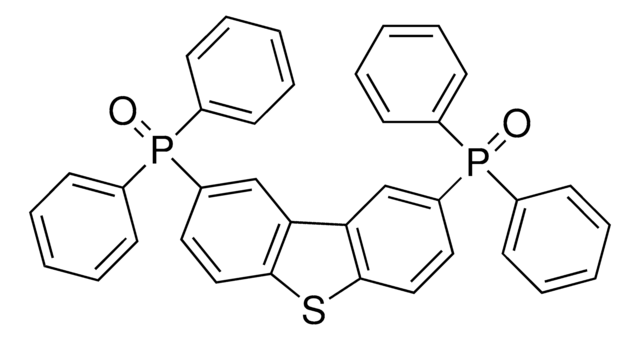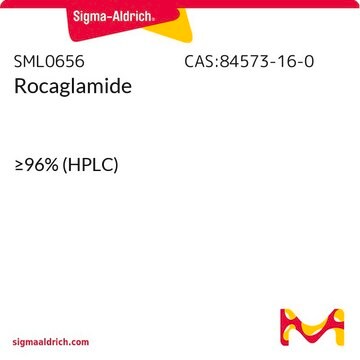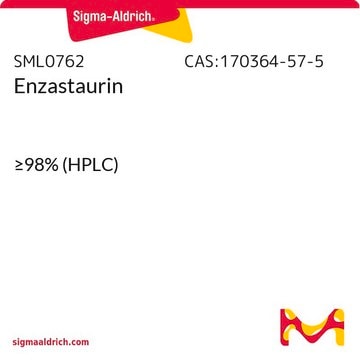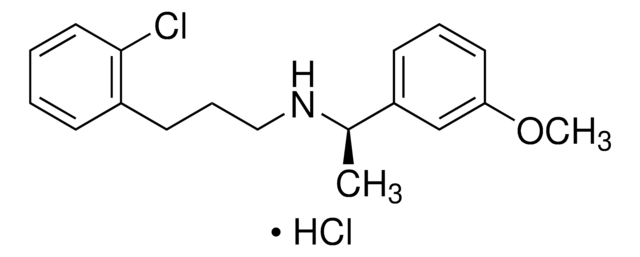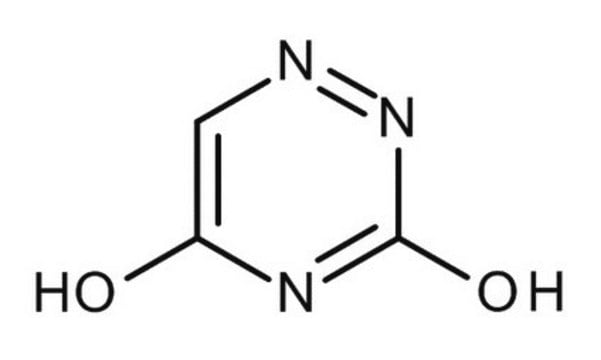SML0197
4E1RCat
≥97% (HPLC)
Synonym(s):
4-[(3E)-3-[[5-(4-nitrophenyl)furan-2-yl]methylidene]-2-oxo-5-phenylpyrrol-1-yl]benzoic acid
About This Item
Recommended Products
Quality Level
Assay
≥97% (HPLC)
form
powder
color
faint brown to dark brown-red
solubility
DMSO: ≥5 mg/mL
originator
Merck & Co., Inc., Kenilworth, NJ, U.S.
storage temp.
2-8°C
SMILES string
OC(=O)c1ccc(cc1)N2C(=O)\C(=C\c3ccc(o3)-c4ccc(cc4)[N+]([O-])=O)C=C2c5ccccc5
InChI
1S/C28H18N2O6/c31-27-21(16-24-14-15-26(36-24)19-6-12-23(13-7-19)30(34)35)17-25(18-4-2-1-3-5-18)29(27)22-10-8-20(9-11-22)28(32)33/h1-17H,(H,32,33)/b21-16+
InChI key
BBQRBOIMSKMFFO-LTGZKZEYSA-N
Application
Biochem/physiol Actions
Features and Benefits
Storage Class Code
11 - Combustible Solids
WGK
WGK 3
Flash Point(F)
Not applicable
Flash Point(C)
Not applicable
Certificates of Analysis (COA)
Search for Certificates of Analysis (COA) by entering the products Lot/Batch Number. Lot and Batch Numbers can be found on a product’s label following the words ‘Lot’ or ‘Batch’.
Already Own This Product?
Find documentation for the products that you have recently purchased in the Document Library.
Articles
We offer a variety of small molecule research tools, such as transcription factor modulators, inhibitors of chromatin modifying enzymes, and agonists/antagonists for target identification and validation in gene regulation research; a selection of these research tools is shown below.
We offer a variety of small molecule research tools, such as transcription factor modulators, inhibitors of chromatin modifying enzymes, and agonists/antagonists for target identification and validation in gene regulation research; a selection of these research tools is shown below.
We offer a variety of small molecule research tools, such as transcription factor modulators, inhibitors of chromatin modifying enzymes, and agonists/antagonists for target identification and validation in gene regulation research; a selection of these research tools is shown below.
We offer a variety of small molecule research tools, such as transcription factor modulators, inhibitors of chromatin modifying enzymes, and agonists/antagonists for target identification and validation in gene regulation research; a selection of these research tools is shown below.
Our team of scientists has experience in all areas of research including Life Science, Material Science, Chemical Synthesis, Chromatography, Analytical and many others.
Contact Technical Service